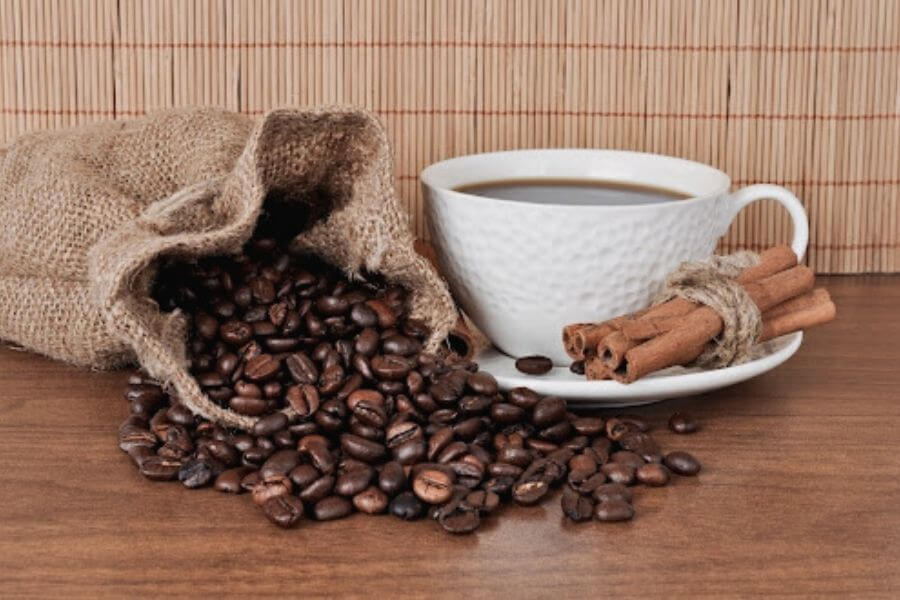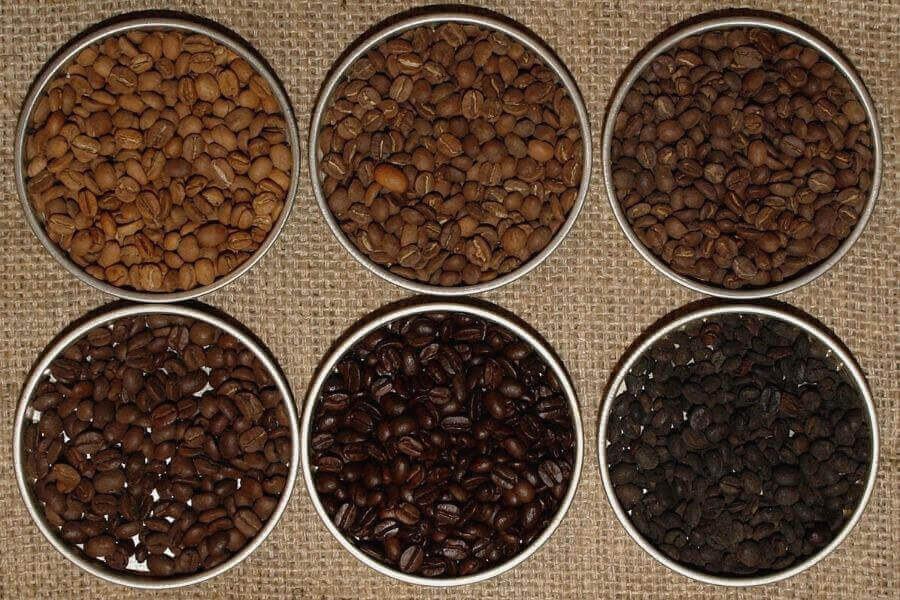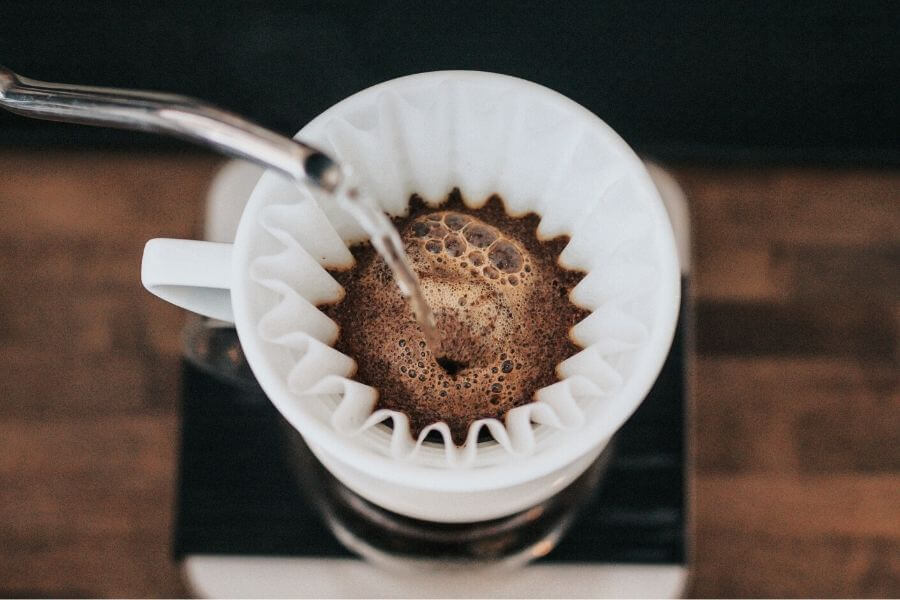What Is Gourmet Coffee?
Just when you think we’ve conquered all coffee levels, the boundaries are pushed again. One of the rising stars in java is gourmet coffee, marketed as high-quality coffee that’s better than the rest. But is it?
For that matter, what even is gourmet coffee? As it turns out, gourmet can mean very different things to different people, and the term is often used by advertisers to indicate quality, exclusivity, and any number of things!
Gourmet coffee may be used in reference to the type of coffee beans used, where that coffee was grown, or how it was processed. However, with no official standards for the phrase, it can be hard to determine the differences between gourmet coffee vs. regular coffee.
That said, looking at the prerequisites for premium and specialty java gives some insight into what gourmet coffee should be.
What we’ll look at as we examine gourmet and specialty coffee:
- Definitions of gourmet coffee
- Gourmet coffee vs. regular coffee: how are they different?
- Coffee grading
- How to tell if your coffee is gourmet
Definitions of Gourmet Coffee
Spoiler alert: there’s no single definition for gourmet coffee. ‘Gourmet’ is largely a marketing term used to convince people to buy coffee. Now, that certainly doesn’t mean that gourmet coffee isn’t, well, gourmet. There’s just no industry standard for the gourmet label.
Gourmet coffee may mean that only 100% Arabica beans are used. It may mean those coffee beans have an amazing aroma, or that the beans were expertly roasted. It may mean all of those things.
However, the term ‘gourmet coffee’ seems to be interchangeable with specialty or premium coffee, and those do have standardized criteria.
According to the Specialty Coffee Association, specialty coffee is the top tier, Grade 1 level of coffee. Premium coffee is Grade 2 level. We’ll get to the specifics of those shortly.
Gourmet Coffee vs. Regular Coffee: What’s the Difference?
While there is an expectation that gourmet or specialty coffee will taste better than regular coffee, the reason ultimately boils down to one thing: the type of coffee bean. Specialty or gourmet coffee typically uses Arabica coffee beans, which are considered superior to other bean types.
Arabica beans have a smoother taste and are sometimes more aromatic than Robusta coffee beans, another common type. Arabica beans do not have as much caffeine as Robusta beans but are somewhat sweeter. For more info on coffee bean types, click here.
Coffee beans used in gourmet or specialty java are usually single-origin beans, meaning they all come from the same location. Gourmet coffee producers put more importance on taste rather than caffeine content. So if you’re looking for a big jolt from caffeine, you may not find it with gourmet java.

Coffee Grading
Coffee can be graded by organizations to prove its quality. The Specialty Coffee Association (SCA), for instance, has grading standards for green Arabica coffee, along with standards for cupping to determine the quality of coffee.
To grade coffee, the following assessments are considered:
- Where the coffee was grown and the type of coffee plant.
- Whether coffee was prepared using washed or natural processing.
- The size, shape, and color of coffee beans.
- Any imperfections with the bean.
- Coffee bean density.
- The bean’s appearance after roasting.
- Flavor and characteristics of a coffee’s taste.
The SCA’s Green Arabica Coffee Classification System has two grades of coffee: specialty and premium. If coffee beans do not reach either of those top two grades, they will be listed as not classified. Beans do not have to be perfect, though, and any defects fall into primary and secondary categories. Category 1 primary defects are more serious than Category 2 secondary defects.
Grade 1 – Specialty Grade Coffee Beans
To be graded as specialty coffee beans, a sample can’t have any Category 1 defects. It can have up to five Category 2 defects. The people who grade coffee are professionally trained and may even hold a certification. Samples of coffee beans are also evaluated for aroma.
Grade 2 – Premium Grade Coffee Beans
Premium coffee beans are very close to meeting the criteria for specialty beans. However, premium grade beans can have slightly more defects, such as quakers, which are beans that haven’t roasted properly. There are no quakers allowed in specialty-grade coffee beans.

Cupping
Brewed java is evaluated through what’s known as cupping, a way of assessing a brewed coffee’s taste and aroma. Again, it’s recommended that only trained professionals evaluate coffee through cupping as it’s somewhat subjective. The SCA’s cupping standards evaluate the following:
- Aroma or fragrance
- The flavor of the beverage
- Aftertaste and acidity
- Balance and body
- Sweetness
- Consistency of flavor
- Overall rating
- Defects
How to Tell if Your Coffee Is Gourmet
Since there’s no set definition for gourmet coffee, how do you know what kind of coffee you’re getting? Admittedly, it can be hard, but labels are your friend!
A good coffee producer will put some information right there on the packaging. The type of coffee beans and the source are often included on labels, for instance. Companies that produce organic, Fairtrade, or Rainforest Alliance certified products almost always put that information on their packaging.
Information about farming practices or sourcing methods is harder to obtain as it’s usually not listed on the packaging. However, most coffee companies publish that information on their websites.
Beyond labels, there are some other ways to ensure your gourmet java is of the best quality. Look for whole Arabica bean coffee which is packaged and sealed.
Yes, there are those open barrels of coffee beans that you grind in the store. However, those have lost any gourmet status because coffee beans start losing their aroma and flavors as soon as they’re roasted. Even faster when they’re exposed to air.
Recapping
Labeling a coffee as gourmet can be a bit misleading, as there’s no such official qualification for java. The word “gourmet” implies a higher level of quality, but there’s no requirement for it. However, when we look beyond gourmet into specialty and premium coffee, there are some definitive standards.
To be labeled as specialty or premium by the Specialty Coffee Association, coffee beans must be evaluated and graded. Coffees with these labels are made from only 100% Arabic coffee beans, are usually single-origin, and must be handled properly through every step of farming and processing.
Using that information, you’ll be able to determine whether your coffee is actually gourmet, or if it’s just another marketing buzzword.

What Is Gourmet Coffee? FAQs
Which Coffee Is Known as Gourmet Coffee?
Gourmet coffee is not a regulated term for describing coffee, but most java lovers agree that it refers to coffee made from only Arabica beans. Gourmet may also refer to the origin of the beans or how they were processed.
Does Gourmet Coffee Have More Caffeine?
No, gourmet coffee usually does not have more caffeine than regular coffee. In fact, because of the preference given to using Arabica beans, which have less caffeine than Robusta beans, gourmet coffee may have less caffeine.
Is Gourmet Coffee the Same as Specialty Coffee?
Gourmet coffee is not necessarily the same as specialty coffee. Specialty coffee has been evaluated and rated in order to make sure that it adheres to strict standards. Only the top graded Arabica coffee beans can be listed as specialty coffee, while there is not a specific set of criteria for labeling coffee as gourmet.
How Do You Make High-Quality Coffee at Home?
There are many things you can do to brew high-quality java at home. First, make sure you’re buying quality whole coffee beans, and grind them only right before use. Use a grind that’s suitable for your preferred brewing method and opt for filtered water to create delicious coffee at home.
What Is the Difference Between Gourmet Coffee and Regular Coffee?
With gourmet coffee vs. regular coffee, it’s not always easy to determine differences, since the gourmet label can be applied to almost any kind of coffee. But generally, gourmet java should use Arabica beans, preferably single-origin beans. Coffee beans should be processed and roasted properly for the best quality, too.
How is Quality of Coffee Measured?
The quality of java can be somewhat subjective, especially once it’s brewed. However, it’s easier to measure the quality of whole coffee beans. The SCA’s Green Arabica Coffee Classification System evaluates beans on their appearance, how they’ve been roasted, their aroma, and other criteria.





